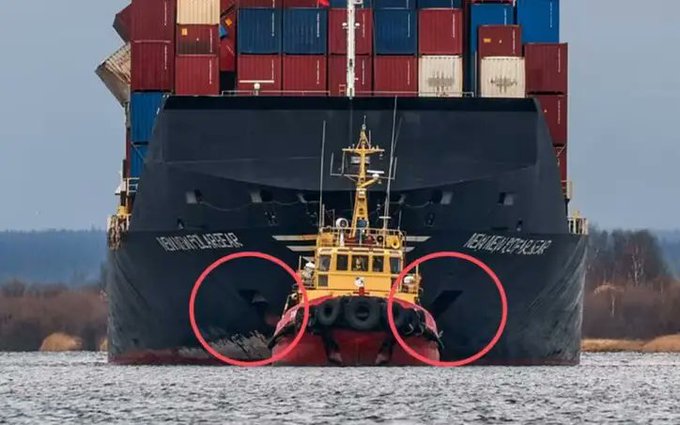An incident under the Baltic Sea in October highlighted once again the vulnerability of underwater infrastructure, which is critical for the energy supply of northern European countries. Now, the countries concerned have joined forces to launch a joint naval mission.
At around 2:00 a.m. on Oct. 8, 2023, Finnish and Estonian operators detected a sudden drop in pressure in the 77-kilometer Balticconnector pipeline linking the two countries, which plays a key role in Finland’s energy supply. It turned out that the pipeline had ruptured and that repairs would not be easy and could take up to six months.
The authorities in the two countries concerned immediately launched an investigation and announced in a statement on Oct. 20 that a Chinese-flagged merchant vessel bound for Russia, the Newnew Polar Bear, became the focus of the investigation.
The anchor of the vessel was found near the ruptured pipeline, and the Newnew Polar Bear was photographed without an anchor in the port of Arkhangelsk, Russia, shortly after the incident.
The investigation has so far been unable to prove whether the incident was accidental or deliberate, but northern European states see it as another example of hybrid warfare.
“This should be seen as a test because it showed how technically it is possible to destroy an underwater infrastructure, which is critical and quite difficult. At a certain stage of a crisis, an adversary may try to damage this infrastructure in many ways, and such techniques may include: a merchant ship and its anchor,” said Jukka Savolainen, an expert at the Helsinki-based European Center of Excellence for Combating Hybrid Threats.
The Balticconnector incident was not the first to expose the vulnerability of underwater infrastructure. Already in response to the September 2022 explosion targeting the Nord Stream pipeline, NATO set up a body to identify threats to critical infrastructure in real time, involving relevant governments and private companies.
However, in the case of the Newnew Polar Bear, the ship was not identified as a threat because there was nothing suspicious about its movements.
As part of the investigation, the Finnish and Estonian authorities tried to contact the crew of the vessel, but received no response, so they sought the help of the Chinese authorities to interrogate them.
But the northern European countries are not waiting to see what the investigators come up with. Ten countries, including the Scandinavian and Baltic states, as well as Britain and the Netherlands, have launched a joint naval mission to protect underwater infrastructure.
The Joint Expeditionary Force has recently held an exercise and will soon be deployed to the open sea.





